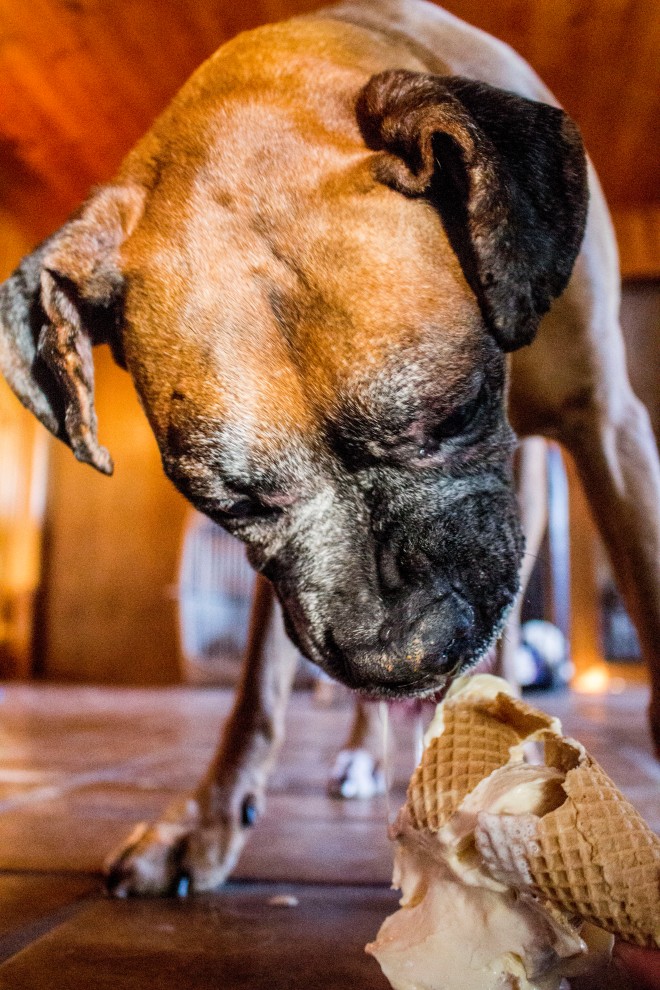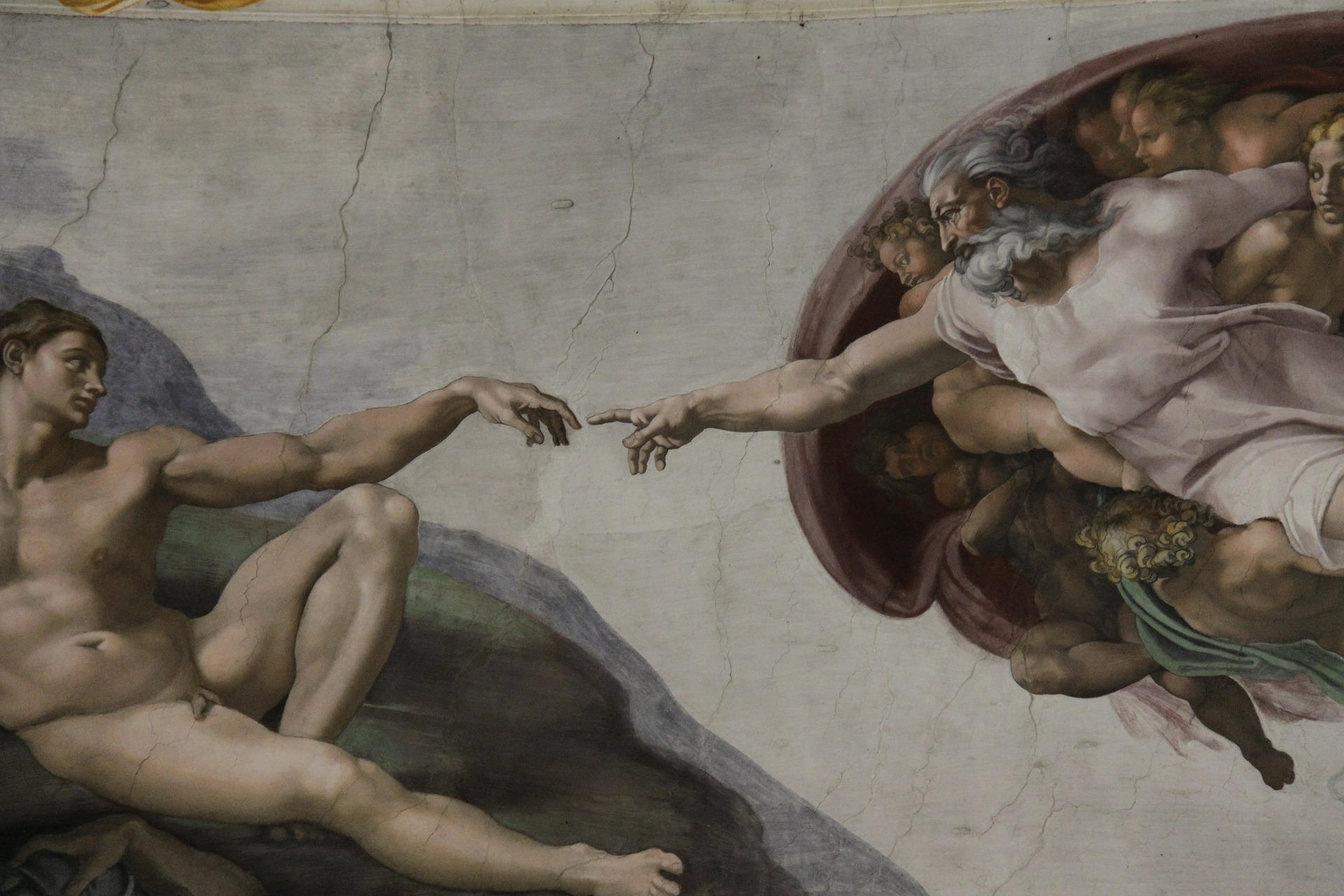Take-Home Message: Dogs can teach us a lot about living and how to treat others.
In Loving Memory, Amos Earl.
He was more than a dog. He was family.
I remember the day we brought him home. His jovial, genuine enthusiasm for life impossible to disguise, Amos’s nub of a tail wagged a hundred miles per hour. He possessed this strange habit, like a contortionist, of shaking and twisting his rugged, canine frame into an almost “U” shape, as if his abdomen was made of rubber. We even wondered for the first few days if we would be able to keep him because of his rambunctious nature.
He had a gentle, loving spirit, though, which ultimately won everyone’s heart. In no time at all, he had become an important part of our family. His life created a ripple, whose wake extends as an example of joy, contentment, and love for all who had the privilege of knowing him. In many ways, the lessons we can glean from this companion, friend, and dog could teach us all a lot about how to live.
As I labored alongside my dad last night, shovel in hand, tears swelling in both our eyes, I reflected on many of the heartwarming memories brought to life by Amos, and contemplated some of the instructions he gave us on how to be better people.
- Live in the present. Amos rarely got worked up about anything. Every moment of his life seemed to be as good as the previous or the next. Whether you found him napping on the couch, hiding, tucked away inside his kennel away from the world, or stalking the holder of any food item, he never wanted for wonder. You could always find him entertaining himself whether chewing on his paws, or licking his crotch. He enjoyed life as it came to him.
- Be overcome with happiness. Amos had a special relationship with each member of his family. He would do the whole contortionist, nub-wagging charade every time someone came through the front door. He would even greet strangers similarly. He would go absolutely nuts, even if it was the fifth time you came home. He never failed to show his joy at being reunited with those for whom he shared a bond.
- Eat ice cream regularly. Amos loved ice cream. He would revel at the chance to choke down a Sonic soft-serve. If you ever even offered him a taste, you’d better have watched your fingers, they might have met the same fate as the cone. He enjoyed the simple things in life, and among these, ice cream was high on the list.
- Don’t conceal your affections. If ever you took a spot on the couch, you better bank on Amos coming to join. He had no shame in this. He shared your seat, whether there was room or not, and he would climb right on top of you. He would jump up on your bed and keep your feet warm for the night, too, if you’d let him. He had little, if any, regard for personal space. He seemed to place a high preference on quality time with his friends and family, and we could all take a page out of his book.
- You’re never too old to play. Amos was never big on fetch. He was more of a “keep-away” or “tug-o-war” kind of guy. He loved to be chased, and he loved to fight you off if you ever could catch hold of whatever poor toy he held hostage in his trap. Even into his older years, he made an effort to engage whoever would give him a cross look in a playful bout. Even if you riled him up wrestling, he would never bite. His gentle spirit spilled into all areas of his life, and he never seemed to take things too seriously.
- Say what’s on your mind. Amos was a bit quirky, too. If ever he needed or wanted something, whether he thought it time to eat or go fetch the paper, he’d let you know. He would bay and whine a whole concert for you. I’m glad for all the times he gave me a front row seat, and carried on conversations with me. He was never afraid to tell you what he was thinking.
- Enjoy the ride. He seemed to be at the height of happiness riding shotgun. It didn’t even matter if you rolled the window down or not, though he’d love it if you did, just riding next to one of his buddies seemed to be as good as it got for him. He gave us a good example of how we should value and cherish the time we have with our friends, family, companions, and loved ones. He treated people well, he made them feel appreciated and valued always, even in the smallest of gestures. You didn’t have to be going anywhere in particular, he was just happy to be along for the ride.
- Be thankful for what you have. Amos could turn a pile of trash into hours of entertainment. He could create a whole new world for himself from a ragged, old tennis ball in the backyard or a pair of dirty socks. He didn’t need much to get by and to be happy. Common things taken for granted or considered garbage by others were every day miracles to him. He saw the beauty of life all around him and embraced it. He demonstrated a higher form of living for us to consider.
- Be remarkable at your job. When your absence is felt, you’ve had a powerful impact on those around you. Amos did just this with his life. He held on and never complained. In fact, he never made any excuses or mention of the pain or complications spreading through his body, though, perhaps if he had, we could have caught it sooner. He just kept on loving and living. He played his role as companion and friend to each of us sensationally. And he hung on for dear life to see to it that each of his kids grew up and he saw them off to college and adulthood before throwing in the towel. He created value in each of our lives, not from a sense of duty, but from a place of loyalty, affection, happiness, and self-esteem. He never tried to be anything that he wasn’t. With Amos, what you saw was what you got, always. He never shied away from being himself, and being himself meant pawing a way into your heart. He became irreplaceable in his time here, and his absence is felt.
- Love unconditionally. Every dog I’ve ever met earns top marks in this category. Amos certainly does. You couldn’t stay mad at him, and he would never let you. Even after he’d ruin the carpet, destroy a shoe, or break into the trash and disseminate it across the house, those big brown eyes, cowering down behind the closest piece of furniture would melt your heart. He knew when he messed up, and he couldn’t hide his guilt. But he would always apologize in his own way. He would come nudge your hand or sing to you in his Tenor 2, or come give you a look asking permission to hop up on your lap. He would never let you go to bed mad, and would attempt to reconcile beforehand if you were about to leave the house. Even if he caught a swat from his nefarious actions, he wouldn’t change his tune toward you. He was relentless in this regard. He might shy out of the room for a few minutes, but he wanted to be around his forever family, his people, his tribe, and would soon come frolicking into the room where you were. He did not exhibit prejudice. He did not act prideful. He loved his people, and he was loved back. He was a model friend, and a great listener. He knew how to console when you needed it. He knew when to come plop down next to you and enjoy a movie, and talk you into a nap instead. He loved you whether you took him on a walk or gave him a treat, or just scratched his ears when you passed him in the hallway. He didn’t ask for anything in return. He was a giver. He lived his love for others, and he painted a portrait of how to treat others. He was the best dog a family could ask for, and if dogs go to heaven, I know he’ll be sitting there by the gates, waiting to greet every new person alike with that little nub-a-wagging, and his butt shaking.
These four-legged, furry teddy bears come into our lives and plant seeds which eventually take root. They grow to become more than just friends, but our closest of companions. They show us love, friendship, loyalty, and so many more lessons on how to interact with the world around us. Amos was a rare dog and had uncanny human characteristics. He has been with us for nearly ten years, and grown up with us. He will be severely missed. Much like he has made a difference in my family’s lives through the joy he has brought the world, I hope these reflections upon his examples can add value to your life.




